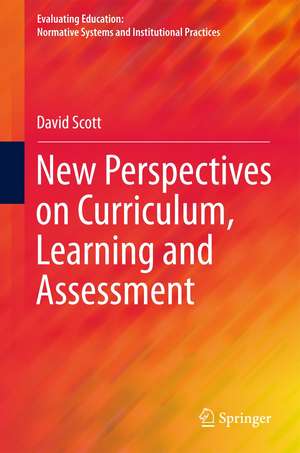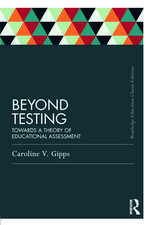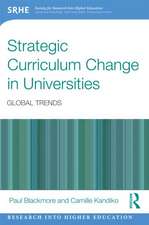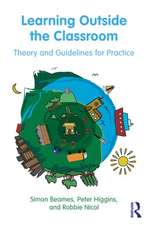New Perspectives on Curriculum, Learning and Assessment: Evaluating Education: Normative Systems and Institutional Practices
Autor David Scotten Limba Engleză Hardback – 13 noi 2015
| Toate formatele și edițiile | Preț | Express |
|---|---|---|
| Paperback (1) | 384.09 lei 6-8 săpt. | |
| Springer International Publishing – 23 aug 2016 | 384.09 lei 6-8 săpt. | |
| Hardback (1) | 391.40 lei 6-8 săpt. | |
| Springer International Publishing – 13 noi 2015 | 391.40 lei 6-8 săpt. |
Preț: 391.40 lei
Nou
Puncte Express: 587
Preț estimativ în valută:
74.90€ • 80.09$ • 62.45£
74.90€ • 80.09$ • 62.45£
Carte tipărită la comandă
Livrare economică 17 aprilie-01 mai
Preluare comenzi: 021 569.72.76
Specificații
ISBN-13: 9783319228303
ISBN-10: 3319228307
Pagini: 200
Ilustrații: XIII, 210 p.
Dimensiuni: 155 x 235 x 17 mm
Greutate: 0.49 kg
Ediția:1st ed. 2016
Editura: Springer International Publishing
Colecția Springer
Seria Evaluating Education: Normative Systems and Institutional Practices
Locul publicării:Cham, Switzerland
ISBN-10: 3319228307
Pagini: 200
Ilustrații: XIII, 210 p.
Dimensiuni: 155 x 235 x 17 mm
Greutate: 0.49 kg
Ediția:1st ed. 2016
Editura: Springer International Publishing
Colecția Springer
Seria Evaluating Education: Normative Systems and Institutional Practices
Locul publicării:Cham, Switzerland
Public țintă
ResearchCuprins
Preface.- Acknowledgements.- 1. Introduction: Curriculum, Learning and Assessment.- 2. Curriculum Frameworks.- 3. Theories of Learning.- 4. Knowledge and the Curriculum.- 5. Learning Environments and Transitions.- 6. Accountability.- 7. Globalisation Mechanisms .- 8. International Comparisons.- 9. A New Model of Curriculum.- Notes.- References.- Author Index.- Subject Index.
Textul de pe ultima copertă
This book offers a detailed analysis and assessment of the state of education round the world. The argument is made that education and curriculum practices are deficient for two reasons. The first is the adoption by governments, policy-makers and practitioners of a set of knowledge practices that can be broadly characterised as empiricist and technicist, and which has come to dominate how curricula are constructed and certainly how education systems and their work can be described. The second is the adoption of a model of curriculum that is both backward-looking and, in its own terms, confused and muddled. This book then sets out an alternative model, which is more cogent and better focused on human wellbeing.
Caracteristici
Offers a new perspective on curriculum, learning and assessment matters Proposes an alternative curriculum framework that acts as a corrective to the flawed models of curriculum currently in use in the world Develops a model of curriculum that has the potential to improve the life-chances of children within our systems of education

















